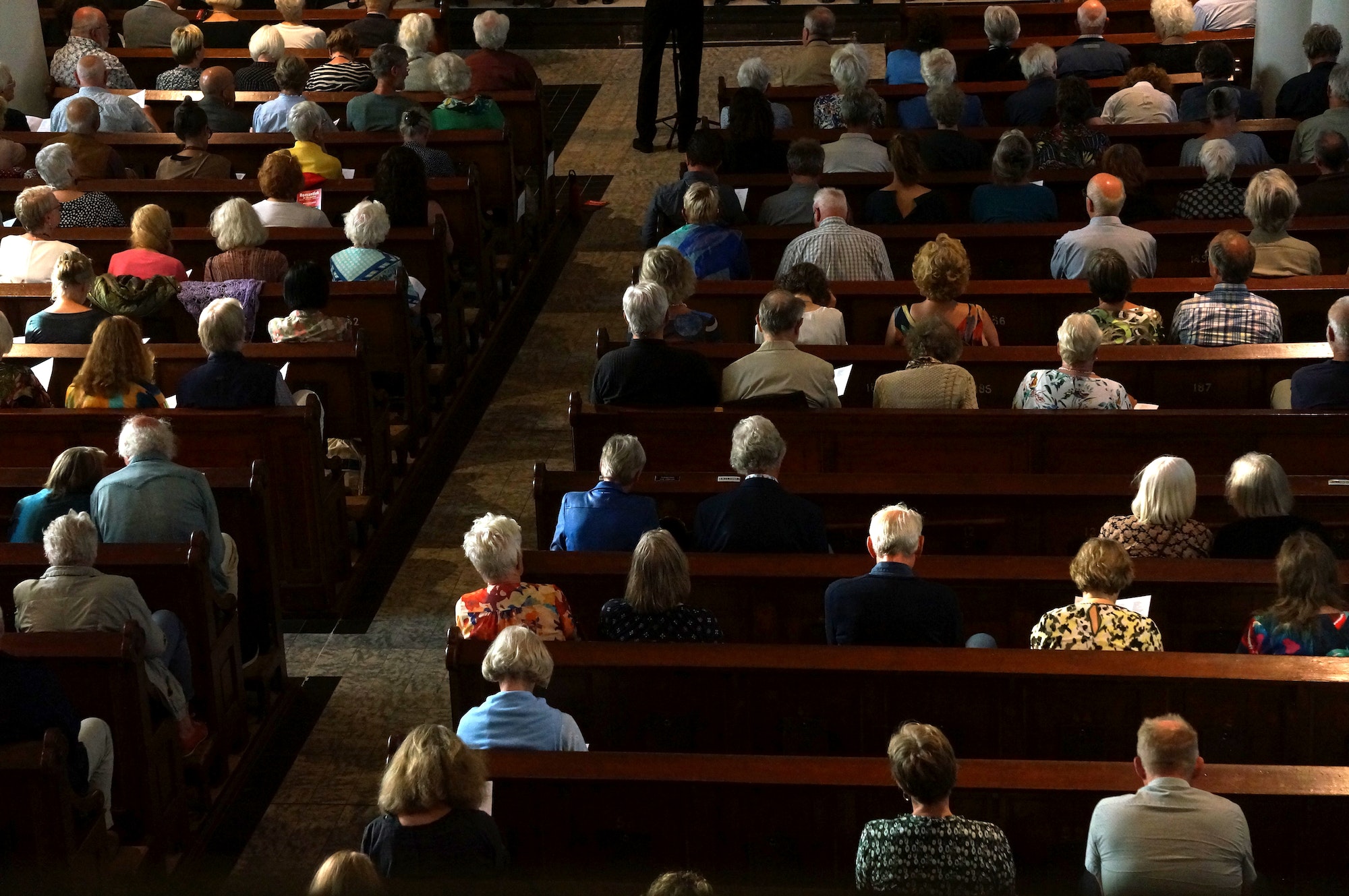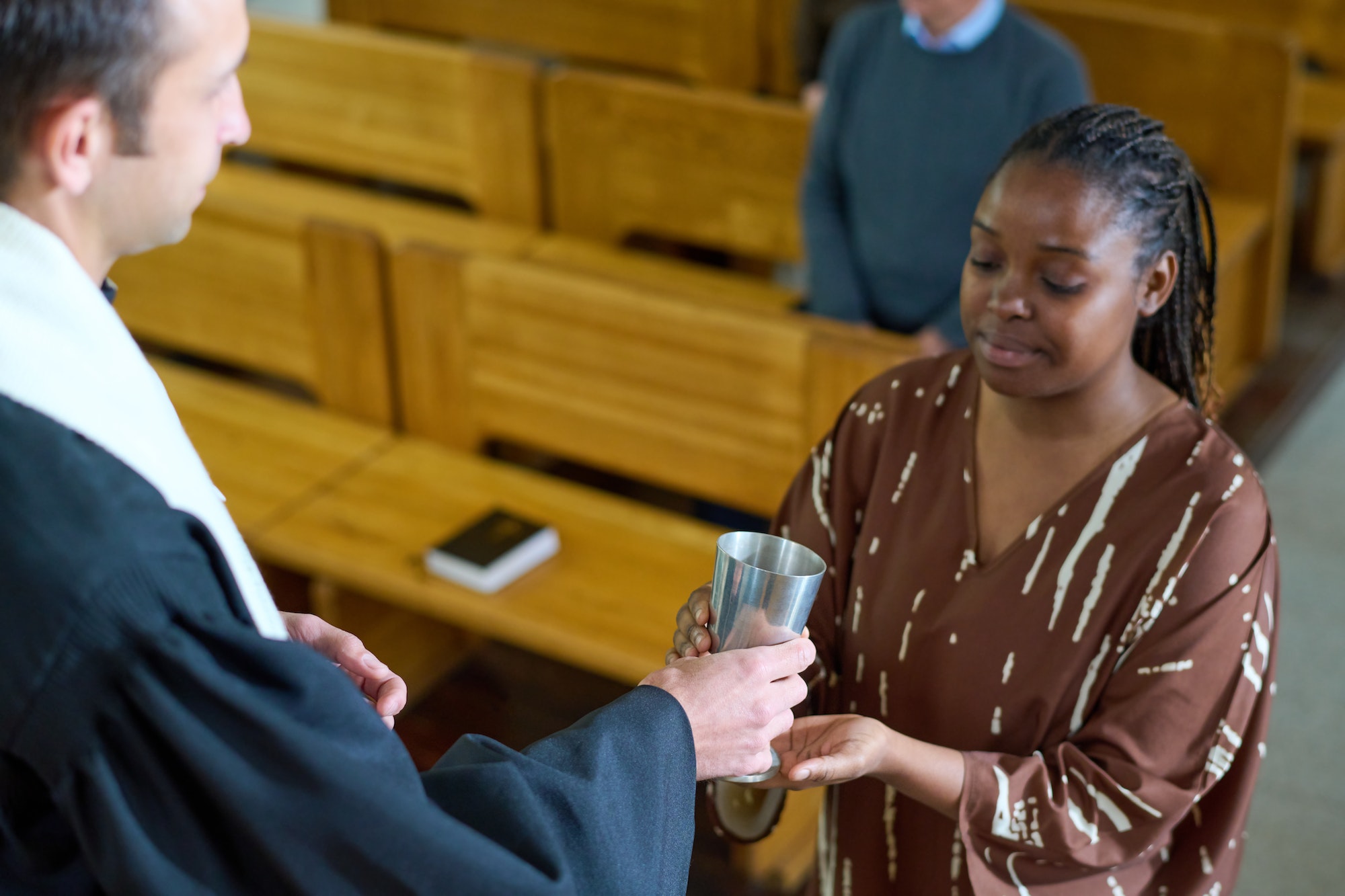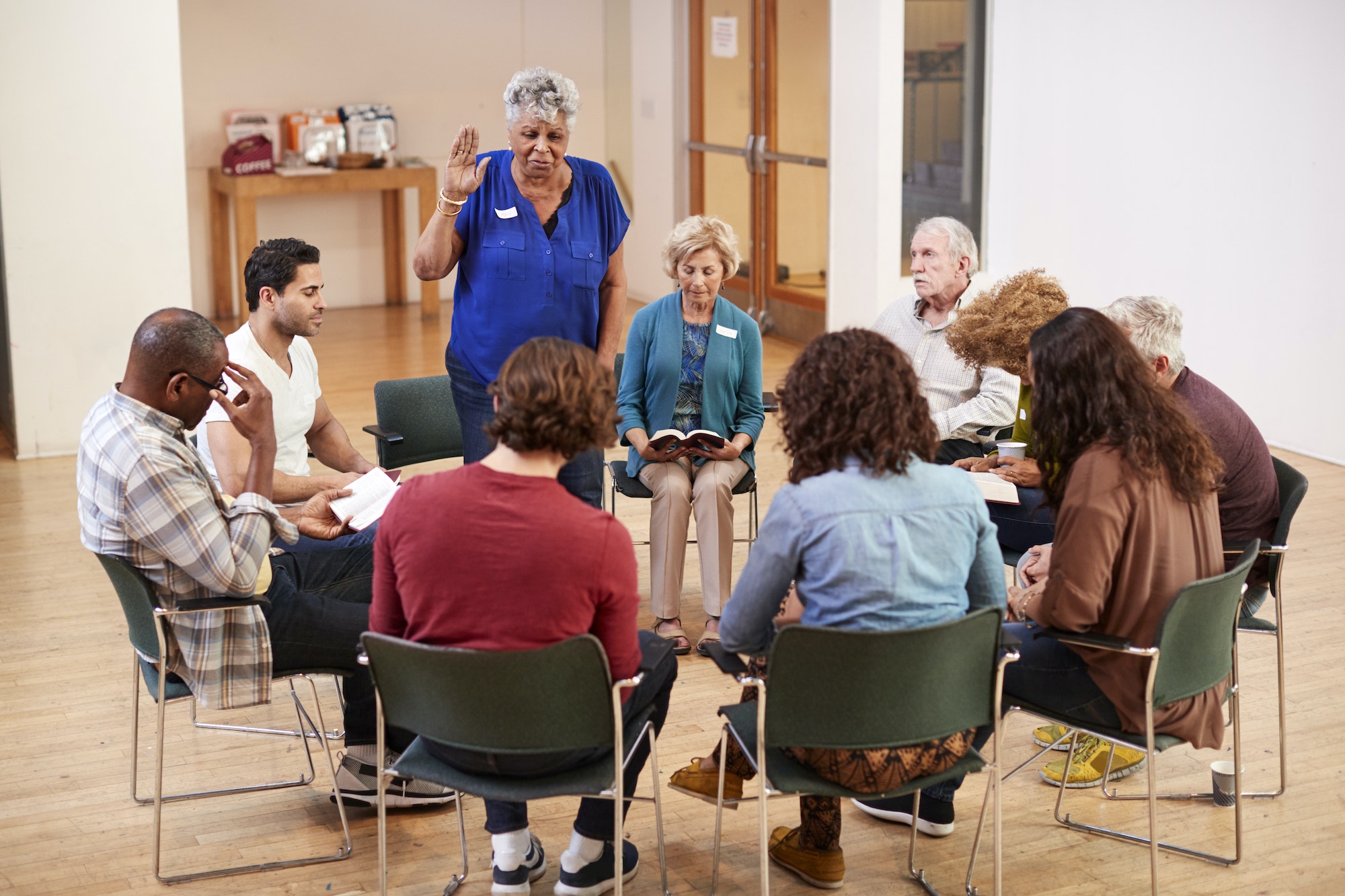Adults with Autism
Attending Church
Navigating the Church Experience
We understand that going to church can present unique challenges for individuals on the autism spectrum, and we’re here to provide you with practical tips and strategies to ensure a positive and inclusive experience. Whether you’re a family member, friend, or a member of the church community, your efforts can make a world of difference in creating a welcoming and supportive environment. So let’s dive in and explore how we can foster social connections and enhance the church experience for adults with autism!

Familiarize Yourself With the Church Environment
Visit the church beforehand to get a sense of the layout, seating arrangements, and any specific rules or customs they follow. This can help reduce anxiety by knowing what to expect.

Understand the Order of Service
Learn about the typical structure of the church service, including prayers, hymns, sermons, and any other rituals. Knowing the sequence of events can make you feel more comfortable and prepared. Some churches have a “meet and greet” time, where members are encouraged to greet those around them with a smile and handshake. This may be uncomfortable for individuals with autism, so it’s important to have an exit strategy if needed.

Establish a Routine
Having a routine or plan can help provide structure and reduce anxiety. Arrive early, find a comfortable seat, and follow along with the service. Knowing what to expect and having a predictable routine can be reassuring.

Find a Quiet Space if Needed
If you find yourself overwhelmed or needing a break, many churches have designated quiet areas or spaces where you can retreat for a few moments. These areas are often intended for prayer or reflection and can provide a calm and quiet environment if you need to regroup.

Be Open About Your Unique Needs
If you feel comfortable, consider informing a trusted individual at the church about your autism diagnosis and any specific needs you may have. They may be able to provide guidance, offer support, or help you navigate certain social situations.


Practice Social Skills
Engaging in social interactions may be challenging, but practicing certain social skills can help. Focus on active listening, making eye contact when appropriate, and using appropriate body language. Additionally, maintaining personal boundaries and respecting others' personal space is important.

Seek Common Interests
Look for opportunities to connect with others who share similar interests or beliefs. Engage in conversations about topics that interest you, such as the sermon, religious teachings, or community activities. This can help foster connections and make socializing more enjoyable.

Participate in Church Activities
Consider getting involved in church activities outside of the regular service, such as Bible study groups, community service projects, or social gatherings. These smaller group settings may provide a more intimate and manageable environment for social interaction.

Be Patient With Yourself
Remember that social situations can be challenging for anyone, and it’s okay to feel overwhelmed or anxious at times. Religion can be practiced inside and outside of the church. Give yourself permission to take breaks, practice self-care, and be patient with your own progress. It’s a learning process, and with time, you can become more comfortable in social settings.

Explore Online Resources & Support Groups
There are online communities and resources specifically geared towards individuals with autism, including those who are part of religious communities. Connecting with others who share similar experiences can provide valuable support, advice, and understanding.

Prioritize Your Comfort and Consider Your Needs
Remember, everyone’s experiences and needs are unique, so find strategies that work best for you. Your comfort and well-being should be a priority, so don’t hesitate to modify your approach or seek additional support as necessary.
Guide Disclaimer
This guide is intended to provide support and suggestions for adults with autism seeking to attend church, if it aligns with their belief system. However, it is important to recognize that each individual’s experience may vary, and not all adults with autism may find church to be a suitable or comfortable environment for their needs.
Church may not be for everyone due to its social expectations, sensory stimuli, and specific rituals, which can potentially overwhelm or exclude individuals who have autism or have sensory sensitivities. It is essential to respect diverse preferences and choices in finding spiritual or community connections that align with personal comfort and well-being.
Furthermore, this guide is not intended to replace any existing therapeutic interventions or treatments recommended by healthcare professionals. It is crucial to work closely with qualified experts to develop an individualized plan that addresses the specific needs and goals of each adult with autism.


